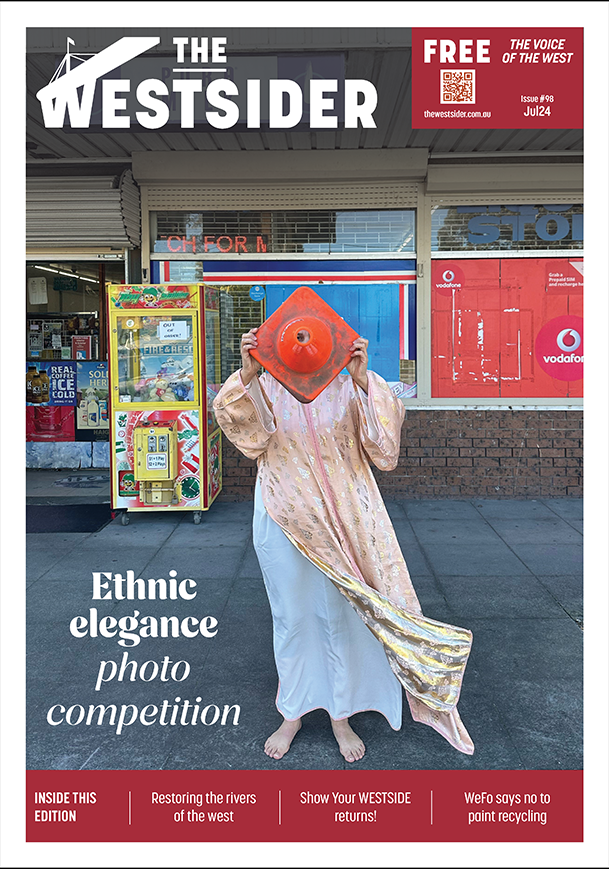By Ehsan Yaghoubi, Associate Professor Victoria University
Melbourne’s vibrant western suburbs are bursting with new life! Homes and infrastructure are popping up everywhere, but these exciting developments come with challenges. Our clay soils for instance are known for shrinking and swelling with the seasons, causing cracks and unevenness on traditional roads. However, researchers at Victoria University (VU) are leading the charge with an innovative solution that’s as good for our community as it is for the planet – green asphalt made from recycled materials!
This ingenious approach puts sustainability at the forefront, using resources responsibly. By giving a second life to demolition waste, reclaimed asphalt pavement (RAP), and even recycled glass, the project significantly reduces our dependence on virgin crushed rock which is a precious resource. Not only does this lessen our environmental impact, but it also creates the potential for a more durable road surface that can better handle the movement of underlying clay soils.
This pioneering project wouldn’t have been possible without a remarkable team effort. Our researchers have joined forces with industry leaders like Asphaltech VIC, Boral, Sustainability Victoria, and Wyndham City Council. Together, we’ve achieved an incredible outcome – an asphalt mix containing over 80% recycled materials! We had to be aggressive in increasing the recycled material content of the mix – from the typically recommended 40% – to make a remarkable impact.
Of course, it didn’t happen overnight. After rigorously testing various blends in VU’s asphalt laboratory, the team formulated the best-performing mix in early 2022. Lab tests showed this mix significantly improved moisture resistance compared to traditional asphalt. This means it’s much less susceptible to damage caused by water infiltration – a key factor in road durability. In August 2022, we put our creation to the test with a real-world trial, paving a section of road at VU’s Werribee Campus with the recycled material mix. A section using conventional asphalt was also built for comparison.
While the full-scale trial is still young (less than two years old), initial observations are very positive. The recycled material mix is showing fewer cracks compared to the conventional asphalt section. This is especially encouraging considering the high percentage of recycled materials used. No other study worldwide has achieved such promising results with such a large proportion of reused aggregates.
Even without the long-term data, the project’s bold use of recycled materials is a game-changer. This VU project has the potential to transform Melbourne’s west. It paves the way for a future where significant portions of our roads are built using recycled materials, perfectly aligning with Australia’s net-zero goals and commitment to a circular economy. By utilizing readily available recycled materials, we can build stronger, more eco-friendly roads that cater to our growing region, and slow down the depletion of our natural resources. This is a win-win for our community, the environment, and for future generations who will inherit the infrastructure we build today.
The project also hints at exciting possibilities for cost-effectiveness. Repurposing waste materials can potentially lead to cheaper road construction, freeing up resources for other crucial infrastructure projects in our rapidly developing west. Additionally, the initial testing suggests a potential for reduced maintenance costs in the long run thanks to the improved moisture resistance.
This project exemplifies what can be achieved when brilliant minds from academia and industry leaders come together. Let’s continue to watch this exciting project unfold and celebrate the ingenuity paving the way for a greener future in our western suburbs!

